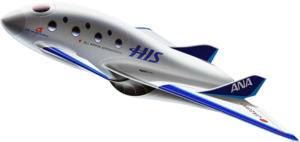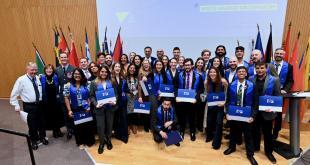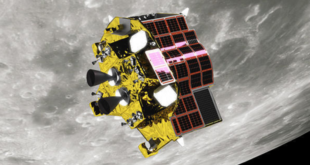
Japanese New Space company PD Aerospace intends to develop a space plane capable of carrying passengers by 2023, making it the latest of a growing number of companies in the Asia-Pacific region seeking to enter the small satellite and space tourism market over the coming years.
The Nagoya-based company plans to offer space flights up to an altitude of 110 kilometers using their reusable spacecraft, which will be shaped like an airplane and be capable of carrying six passengers and two pilots, at a price of ¥17 million (U.S.$153,000) per person
“We would like to open a new space era (with the spacecraft),” Shuji Ogawa, president of PD AeroSpace, said in a report in the Japan Times. “Space has the power to attract people.”
PD Aerospace successfully carried out a combustion experiment last summer with the spacecraft’s pulse detonation engine, which can switch from air-breathing mode, where propulsion is achieved through pushing out hot exhaust gases, to rocket mode.
According to the company’s plan, the spaceship will change its mode of combustion at 15 km to ascend further, and passengers will be able to enjoy a near weightless experience for about five minutes while looking down at Earth.
By launching a reusable spacecraft from an airport runway, PD AeroSpace aims to keep costs down, as compared to using non-reusable rockets.
Inspired by Scaled Composites LLC’s SpaceShipOne, which in 2004 became the first privately owned piloted vehicle to reach space,
Ogawa founded PD Aerospace in 2007. The company won the U.S.$10 million Ansari X Prize, established to encourage entrepreneurship in space travel.
PD Aerospace is backed by investments from firms including ANA Holdings Inc., as well as support from approximately 40 expert volunteer workers.





